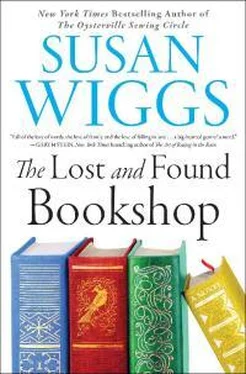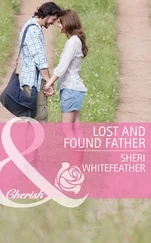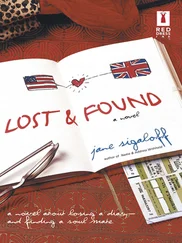I was overwhelmed by such a grand treasure, but he assured me that he had little interest in pictures of birds, and he would rather see them in the possession of someone who would appreciate them.
Tucked behind the page was a letter in different handwriting.
To my treasured friend Colleen, in appreciation of our friendship, please accept the gift of these volumes, which contain the complete set of hand-colored engravings by Mr. John James Audubon. I know they will find a home with you, whose accomplishments might one day rival his own.
In appreciation and respect,
William Randolph Hearst
Natalie looked up from her reading. “I don’t know what to say. It’s a wonderful story. Do you think it’s true? Could this letter be authentic?”
“I wish I knew,” he said. “My father was so very young when he lost her. He did recall her beautiful pictures, and he spoke of ‘Mam’s birds,’ but assumed they were actual birds, or perhaps her own drawings. He was too young to know what she was about.”
“If this is true, she was acquainted with William Randolph Hearst. Could he truly have given her a set of The Birds of America ?”
Grandy focused on the journal drawings. “Her renderings of birds look exactly like the Audubon versions.”
Shadows gathered in the gardens, bringing the evening chill with them. “Let’s go inside,” Natalie said. “We can finish reading later.”
Cleo had closed up shop for the evening. Natalie made a pot of tea and sent out for dinner—Moroccan lentil soup and sourdough—and they sat at Grandy’s table. She found a couple of replica editions of Audubon’s works on the shelf and showed them to her grandfather. Some of Colleen’s drawings were direct copies, as if she had been learning from the master himself.
Natalie sent a message to Tess, asking if it was possible to find out if the Hearst family had ever owned a copy of the seminal work.
Grandy added honey to his tea. “I hope your friend can enlighten us. Let’s finish reading, shall we?”
Natalie cleared away the dishes while he tucked himself into his reading chair. The amber glow of the reading lamp illumined his timeworn features, now set in an expression of contentment. Though his hands trembled over the pages and his body was thin and fragile, his eyes were bright with interest. There were things that had not yet been stolen from his memory. This, she realized, feeling a wave of love, was probably why her mother had been adamant about keeping him here in the home he’d always known.
* * *
May 1897. I went to watch the football matches at the Presidio, and there I met the most extraordinary man. He is a soldier encamped at Astor Battery, and he did not take part in the games that drew a crowd this fine day. I heard someone strumming and singing and was drawn to the sweetness of his song. His name is Julio Harper, and he belongs to a regiment of colored soldiers. His mother, he said, was a Spanish camp follower, cooking for a regiment of infantry soldiers, and his father was a freed slave from the state of Texas. He is ever so gentle, and he sings the old Spanish songs of his mother. We are shy with each other, yet filled with the most tender and magnificent love anyone could imagine.
August 1897. Julio and I were married by a sympathetic chaplain. Before we can live as man and wife, Julio must complete his military service. But oh, such dreams we have. A farm where apples grow and the grass is sweet, somewhere in the hills north of the city. After so many years alone with my books and sketches, I am awash with bliss.
“Soldiers go to war,” Julio tells me. “It is what we do.” He tries to soothe my distress at the prospect of his leaving. Here in San Francisco, there are no pirate raids or attacks by Indians. He must keep his fighting skills sharp. He is trained to operate a large wheeled gun called the Hotchkiss revolving cannon, but his targets are imaginary enemies out on the misty bay, inciting the sea lions to bark. The drills and duties at the Presidio are all for show.
May 1898. It is the height of irony that the one man who nurtured my dream is the same man who stole it away. Mr. William Hearst will likely have forgotten that he once fostered my art and fed my craving for learning. And he will never know that he is in part responsible for separating me from the man I love.
Since that time he has created a sensation across the land. The Examiner was only the first. Now his many newspapers have incited the populace to call for war with Spain. I cannot even look at the banners screaming across the front of the paper. He has separated me from the person I love. From my husband. From my husband. Julio was selected to embark with the first expedition on account of his facility with the Spanish language and his knowledge of the cannon.
I nearly fainted from unseasonable heat as the troops passed through the Lombard Gate of the Presidio on their march to the waiting ships. I rushed along with the crowd to Market Street and then to the docks. All was shouting and chaos as men, supplies, and livestock boarded the steamships. The destination was the port of Manila in the Philippine Islands, a place I’d never heard of. I cannot even imagine a place so far away.
When we said goodbye, I didn’t know about the baby.
“That’s so sad,” Natalie said to her grandfather. “That was the last time she ever saw her husband.”
“And she blamed Hearst. His papers exaggerated and even manufactured events to incite the war that took her husband from her. I believe that’s where we get the term ‘yellow journalism.’”
“Why would he do that?”
“To sell papers. Hearst and Joseph Pulitzer. The papers whipped everyone into a frenzy about Spain and didn’t let up until war was declared.”
“Are we doing any better now?” She thought about the current online shouting matches and misinformation campaigns, and it made her wonder. “The world is still a mess, but journalism—real journalism—is a lot better. I like to think so, anyway.”
Colleen’s later entries were briefer and less frequent, likely a consequence of looking after a baby.
By the time my beautiful son was born, Julio was gone, missing and presumed dead. Killed by native rebels.
Only the existence of my baby boy keeps me from following Julio into death, the way I yearned to follow my departed family. My son, Julius, is my only anchor to this world.
See how he thrives at just six months. Sunny and happy, the very picture of health, though he was born with a bad foot. My sweet cherub. He will never know his da.
“Look at the sketches,” Natalie said. “These are pictures of your father.”
They went through the drawings, one by one. There was Julius as a baby and then a toddler. And then a small boy, slender and doe-eyed, dressed in knickers.
“Could this be the old apple tree you remember?” Natalie showed her grandfather a sketch of the boy, barefoot and shirtless, sitting on a low branch. Under the drawing was the name Julius Harper in childish lettering.
My boy shows such promise , Colleen wrote in 1906. The good brothers at Saint Swithin’s concur, and it is with bittersweet pride that I send him off each day to their care.
“He was going to school,” Natalie said. “Oh, Jesus. Look at the day.”
The last entry they found was the sixteenth of April, 1906.
Two days before the earthquake struck.
Part Six
Voici mon secret. Il est très simple: on ne voit bien qu’avec le cœur. L’essentiel est invisible pour les yeux.
—Antoine de Saint-Exupéry, Le petit prince
And now here is my secret, a very simple secret: It is only with the heart that one can see rightly; what is essential is invisible to the eye.
Читать дальше












